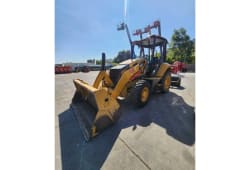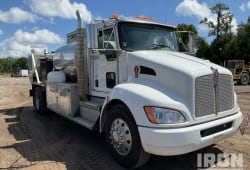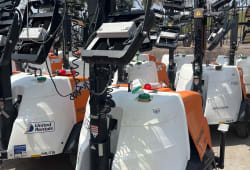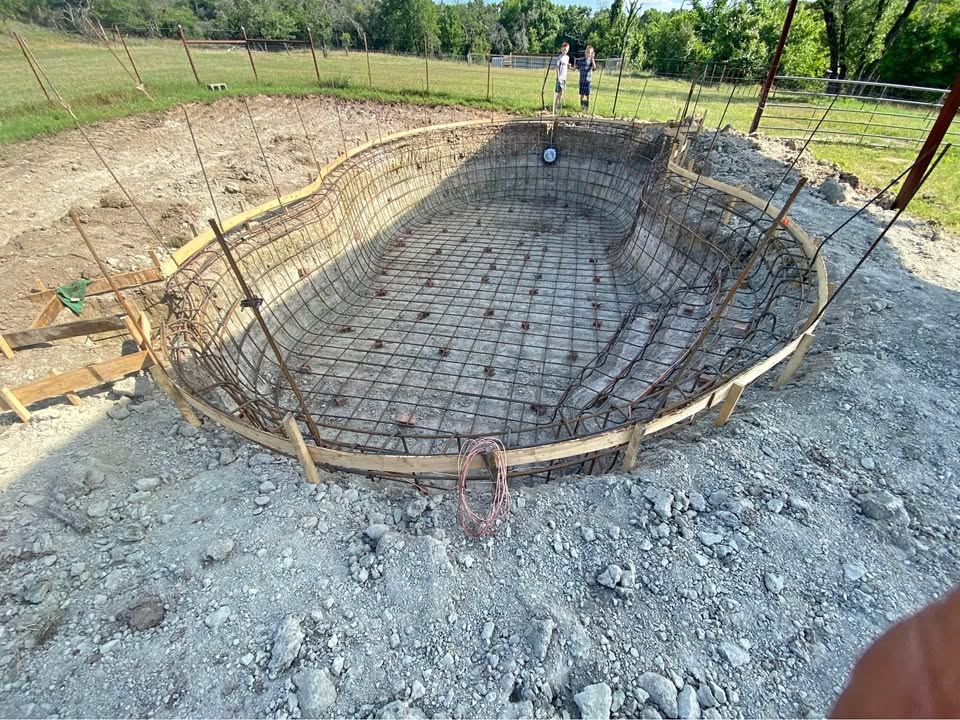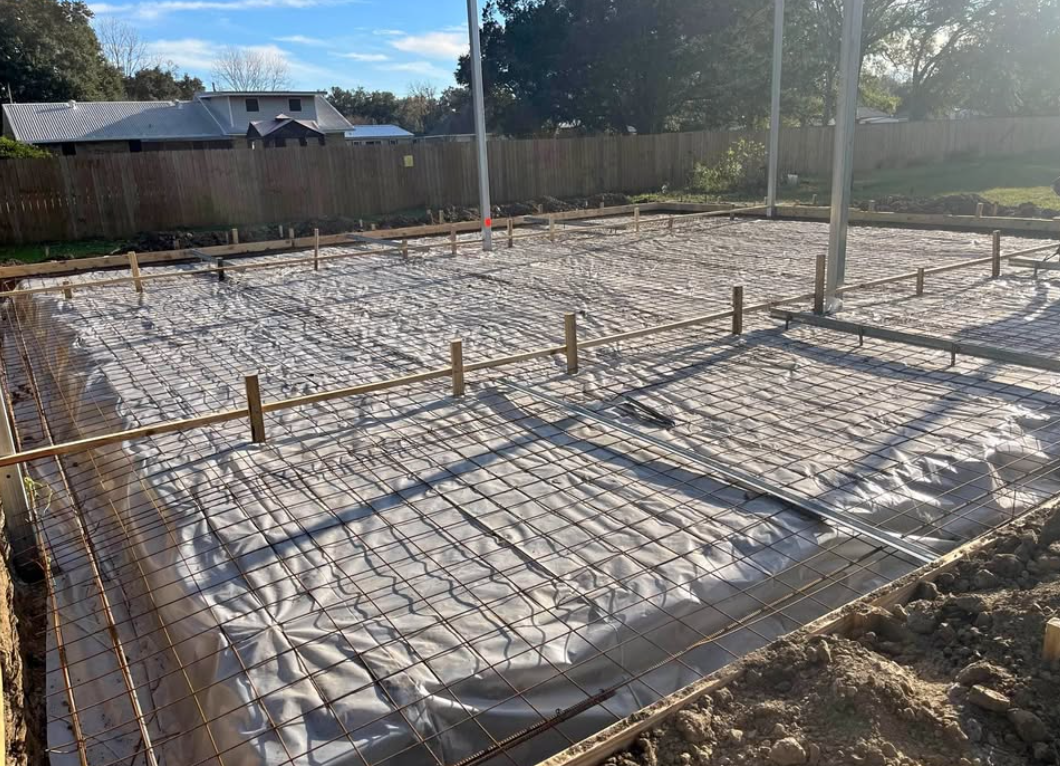A Brief Look into Dump Trucks
10 Min read
)
November 25, 2023
Owning a dump truck is more than a business investment; it's a journey into the heart of industries that rely on efficient material transport. In this comprehensive exploration, we delve into the profitability, market trends, safety considerations, and historical evolution of dump trucks. From loading tips to extending the lifespan of these robust vehicles, this article aims to provide a 360-degree view of dump trucks, answering questions on investment viability and offering practical insights into running a successful dump truck operation.
How Profitable is Owning a Dump Truck?
Owning a dump truck can be remarkably profitable, especially in industries reliant on efficient material transport. The consistent demand for hauling services in construction, mining, and waste management positions dump trucks as lucrative assets. Securing contracts for material transportation provides a steady income stream, while diversification into additional services further enhances profitability. However, success hinges on strategic management of factors like fuel costs and maintenance expenses. Ultimately, the durability and versatility of dump trucks make them not just vehicles but valuable contributors to businesses aiming for long-term financial gains.
Dump Trucks as Profitable Assets
Owning a dump truck can be a lucrative venture, especially in the construction, mining, and waste management industries. The demand for efficient material transport positions dumps trucks as essential assets, contributing significantly to their profitability.
Earning Potential Through Contracts
Securing contracts for hauling services can establish a steady income stream for dump truck owners. Construction projects, waste removal, and other industrial activities often require the reliable transport of materials, presenting ample opportunities for profitable contracts.
Factors Influencing Profitability
Profitability in the dump truck business is influenced by factors such as fuel costs, maintenance expenses, and the frequency of contracts. Strategic management of these elements is key to maximizing profits and ensuring a sustainable business model.
Is Investing in a Dump Truck Worth It?
Investing in a dump truck can yield long-term returns, especially in industries with consistent material transport needs. The durability and versatility of dump trucks make them valuable assets with the potential for a solid return on investment over time.
What is a Fun Fact About Dump Trucks?
The Invention of the Dump Bed
A fascinating fun fact about dump trucks is the invention of the dump bed. In 1920, George W. Ray in Elmer, New Jersey, patented the hydraulic dump bed. This innovation revolutionized the efficiency of unloading materials, marking a significant milestone in the evolution of dump trucks.
Varied Dump Truck Sizes
Dump trucks come in various sizes, from small, agile models for landscaping to massive hauliers used in mining operations. This diversity showcases the adaptability of dump trucks to different tasks and industries.
Dump Trucks in Popular Culture
Dump trucks have found their way into popular culture, featuring in children's toys, and cartoons, and even becoming iconic symbols of construction sites. Their distinctive appearance and functionality make them recognizable and celebrated in various forms of media.
What is the Market Trend for Dump Trucks?
Growing Demand in Construction
The market trend for dump trucks shows a consistent and growing demand, particularly in the construction sector. Infrastructure development projects worldwide fuel the need for efficient material transport, driving the market for dump trucks.
Technological Advancements
Advancements in technology, such as telematics and GPS tracking, have become integral in modern dump trucks. These features enhance efficiency, safety, and overall performance, contributing to the market's upward trajectory.
Sustainable Practices
An emerging trend in the dump truck market is a focus on sustainability. Manufacturers and operators are exploring eco-friendly options, including electric-powered dump trucks and fuel-efficient models, aligning with global environmental initiatives.
Ways To Safely Load and Unload a Dump Truck
1. Proper Loading Techniques
Safely loading a dump truck involves adhering to proper techniques, and ensuring even distribution of materials. This minimizes the risk of imbalance during transportation, contributing to overall safety.
2. Inspection of Load Limits
Before loading, it's crucial to inspect and adhere to the dump truck's load limits. Overloading can compromise stability and pose safety hazards during transportation.
3. Securement of Materials
Implementing securement measures, such as using tarps or nets, prevents materials from shifting during transport. This not only ensures safety but also avoids potential damage to the dump truck or other vehicles on the road.
Quick Guide: Types of Dump Trucks
Ways To Make Extra Money With Your Dump Truck
1. Offering Additional Services
Diversifying revenue streams can be achieved by offering additional services beyond traditional hauling. This may include snow removal, equipment transportation, or even participating in emergency response efforts.
2. Rental Opportunities
Renting out a dump truck during periods of downtime presents an opportunity to generate extra income. This allows other businesses or individuals to utilize the dump truck's services without the commitment of ownership.
3. Contracting for Specialized Tasks
Seeking contracts for specialized tasks, such as land clearing or site preparation, can contribute to additional income. Identifying niche markets and tailoring services accordingly expands the dump truck's earning potential.
The Differences Between Tub vs. Square Box End Dump Trucks
Tub End Dump Trucks
Tub-end dump trucks feature a rounded container for holding materials. This design facilitates a smooth and controlled discharge of materials, making them suitable for precise placement.
Square Box End Dump Trucks
Square box-end dump trucks have a box-shaped container, offering advantages in terms of stability during transport. This design is often preferred for hauling larger volumes of materials.
Application Considerations of Both
Choosing between the tub and square box end dump trucks depends on the specific application. While tub-end dump trucks excel in certain tasks, square box-end dump trucks may be more suitable for others, emphasizing the importance of understanding their unique features.
A Brief History of How Dump Trucks Have Evolved
Early Dump Truck Designs
The evolution of dump trucks dates back to the early 20th century, with manually operated designs. The introduction of hydraulics in the 1920s revolutionized the unloading process, marking a significant advancement in their functionality.
Hydraulic Dump Beds
The development of hydraulic dump beds in the 1920s paved the way for modern dump truck designs. This innovation improved efficiency, allowing for quicker and more controlled unloading of materials.
Technological Integration
In recent decades, dump trucks have witnessed technological integration, with features such as advanced control systems, telematics, and enhanced safety measures. These advancements reflect the ongoing evolution of dump trucks in response to industry demands.
Should You Get a CDL Before Driving a Dump Truck?
CDL Requirement for Certain Dump Trucks
Depending on the size and weight of the dump truck, a Commercial Driver's License (CDL) may be a legal requirement. Larger dump trucks often fall under this category, necessitating proper licensing for operation.
CDL Training and Certification
Getting a CDL involves undergoing training and certification to ensure proficiency in operating commercial vehicles. This not only meets legal requirements but also enhances safety and competence in dump truck operation.
Safety First: Dump Truck Loading Tips and Tricks
1. Employee Training Programs
Implementing comprehensive employee training programs ensures that operators are well-versed in safety protocols during the loading process. This minimizes the risk of accidents and promotes a culture of safety within the workforce.
2. Regular Maintenance Checks
Regular maintenance checks on dump trucks are essential for identifying and addressing potential safety hazards. This includes inspecting hydraulic systems, brakes, and load-bearing components to ensure optimal performance.
3. Adherence to Weight Limits
Strict adherence to weight limits is paramount for dump truck safety. Overloading can compromise stability and lead to accidents, emphasizing the importance of constant vigilance and compliance with load regulations.
Ways To Increase the Lifespan of Your Dump Truck
1. Routine Maintenance Practices
Implementing routine maintenance practices, such as regular oil changes, filter replacements, and hydraulic system inspections, contributes to the longevity of a dump truck. This preventive approach minimizes the risk of breakdowns and extends the vehicle's lifespan.
2. Proper Storage
Providing proper storage for dump trucks during periods of inactivity protects them from environmental elements and potential damage. Sheltering them from harsh weather conditions and corrosive substances enhances their overall durability.
3. Operator Training on Careful Operation
Training operators on careful and considerate operation practices can significantly impact the lifespan of a dump truck. Avoiding harsh maneuvers and abrupt stops minimizes wear and tear on essential components, ensuring a longer and more efficient service life.
5 Tips for Starting a Waste Pick-Up Business
1. Market Research and Identification of Niche
Conducting thorough market research and identifying a niche within the waste pick-up business is crucial for success. Understanding local demand and tailoring services accordingly sets the foundation for a sustainable venture.
2. Investment in Reliable Dump Trucks
Investing in reliable dump trucks equipped for waste pick-up operations is essential. The efficiency and capacity of these vehicles directly impact the business's ability to meet demand and provide reliable services.
3. Development of Efficient Routes
Optimizing waste pick-up routes enhances efficiency and reduces operational costs. Planning routes based on geographic concentration and pick-up frequency streamlines operations, maximizing the dump truck's productivity.
Top 7 Articulated Dump Trucks for Construction
Warning Signs Your Dump Truck Is Over Load Capacity
1. Strain on Hydraulic Systems
One warning sign of overloading is the strain on the dump truck's hydraulic systems. Unusual sounds, slow movements, or visible stress on hydraulic components indicate that the load capacity may have been exceeded.
2. Handling and Stability Issues
Experiencing handling and stability issues, such as difficulty steering, braking problems, or an overall decrease in control, can signify that the dump truck is operating beyond its load capacity. Immediate attention to the situation is crucial for safety.
3. Visual Inspection of Tire Wear
A visual inspection of tire wear can provide insights into load capacity issues. Uneven tire wear or excessive damage may indicate that the dump truck has been consistently overloaded, necessitating a reassessment of operational practices.
In conclusion, the world of dump trucks is expansive, covering profitability considerations, market trends, safety measures, and even historical evolution. Whether contemplating an investment, seeking safety tips, or exploring ways to diversify income, this comprehensive guide aims to be a valuable resource for anyone involved or interested in the dump truck industry.
Visit Boom & Bucket to buy and sell your machinery.

Caleb Woods is an experienced content specialist and an editor at Boom & Bucket, blending his journalism background with expertise in the heavy equipment industry. He delivers engaging, informative content to help professionals stay informed and make smarter decisions in the machinery market.





